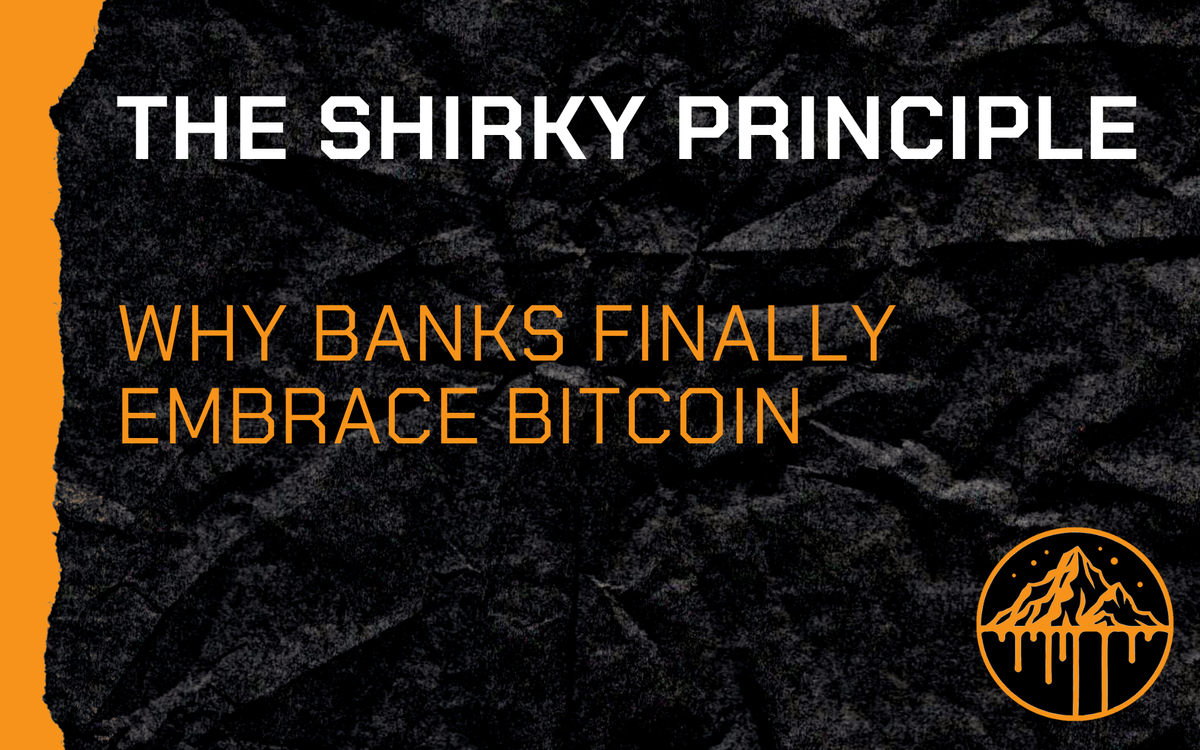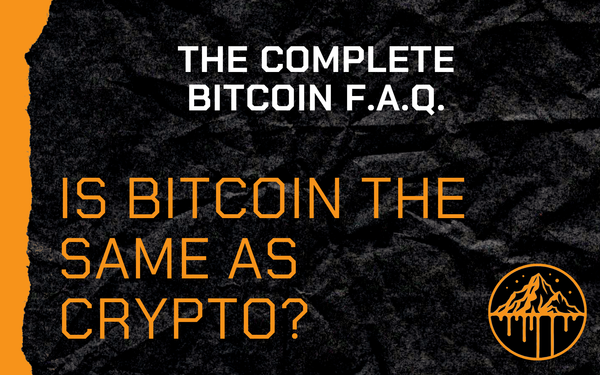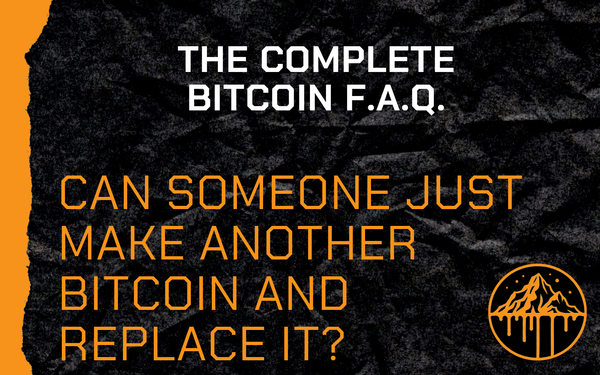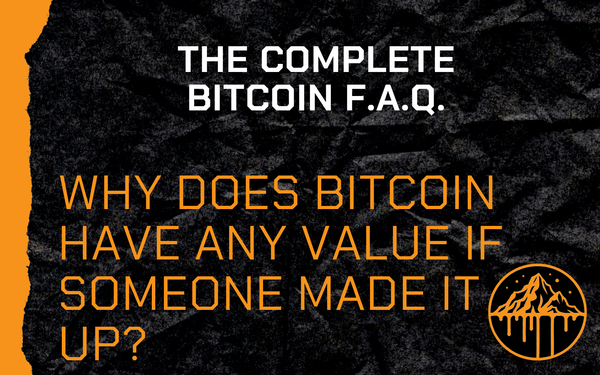The Shirky Principle: Why Banks Finally Embrace Bitcoin
Banks are embracing crypto because they can't kill it.

“Institutions will try to preserve the problem to which they are the solution.” – Clay Shirky
The Shirky Principle suggests that large institutions, especially those with entrenched interests, resist change when it threatens their existing role. Rather than embracing innovation, they work to maintain the very problems they claim to solve.
For years, the banking industry—and its regulatory overlords—viewed Bitcoin and crypto-assets as existential threats to the traditional financial system. The Office of the Comptroller of the Currency (OCC) reinforced this stance through Interpretive Letter 1179, which added layers of bureaucratic oversight to banks engaging with crypto. Yet, with Interpretive Letter 1183, the OCC has quietly pivoted, rescinding 1179 and reaffirming that banks can participate in crypto custody, stablecoin reserves, and distributed ledger activities.
The question is: Why now?
And the answer, in part, is the Shirky Principle.
If this sounds familiar, its because this post is related to the one I wrote a few days ago about showing my daughter how to access Bitcoin on a cold wallet.
Banks Are Embracing Crypto Because They Can’t Kill It
The OCC’s Interpretive Letter 1183 marks a subtle but significant capitulation—an acknowledgment that banks can no longer ignore or suppress the rise of crypto-assets. Just a few years ago, financial regulators oscillated between hostility and bureaucracy, creating friction for any bank that wanted to engage with digital assets.
Now, with this new interpretive letter, banks are being given the green light to proceed with crypto services—provided they do so under the umbrella of regulatory oversight. This shift isn’t about banks suddenly believing in Bitcoin’s mission of financial sovereignty. It’s about survival.
Following the Shirky Principle, banks aren’t solving the problem of financial exclusion, inflation, or systemic risk—they are the problem. They print money, control credit issuance, and create cycles of debt dependency. Bitcoin, as a decentralized alternative, renders them obsolete as intermediaries.
But rather than fight an unwinnable war against a decentralized system, they are now pivoting toward co-opting it. This is the classic institutional playbook—absorb the disruptive technology, regulate it, and turn it into another profit-generating mechanism within the existing system.
The Rescission of Interpretive Letter 1179: A Strategic Retreat
When the OCC originally issued Interpretive Letter 1179, it introduced a supervisory non-objection process for banks engaging with crypto. This meant that before participating in Bitcoin custody, stablecoin reserves, or distributed ledger verification, banks had to seek approval from regulators.
By rescinding this requirement in Interpretive Letter 1183, the OCC is streamlining the process—not out of goodwill, but because the previous restriction only handicapped U.S. banks while allowing other jurisdictions to move ahead. Global competitors like Singapore, Switzerland, and even Hong Kong have embraced crypto banking services at an accelerating pace.
The U.S. is playing catch-up, and the OCC’s new stance is less about innovation and more about control. If banks can position themselves as the “safe” and “regulated” intermediaries of the crypto economy, they preserve their role as gatekeepers even as money moves onto decentralized rails.
In essence, Interpretive Letter 1183 isn’t an endorsement of crypto—it’s a controlled surrender.
The Shirky Principle in Action: Banks Will Try to Co-Opt Bitcoin
The clearest lesson of the Shirky Principle is that institutions don’t embrace disruptive innovation until they have no other choice. Historically, banks have fought against Bitcoin and crypto-assets through:
- Media narratives (“Bitcoin is for criminals” – but at least Ross is free!)
- Regulatory uncertainty (forcing businesses into compliance limbo)
- Financial exclusion (debanking crypto companies)
But as adoption grows, they can no longer afford to ignore it. Instead, they will co-opt it, reshape it, and turn it into something they can control.
We’ve already seen this happen with:
- The Bitcoin ETF approvals, allowing Wall Street to profit from Bitcoin without self-custody.
- The push for central bank digital currencies (CBDCs) as a response to stablecoins. Fuck this.
- The U.S. government’s strategic Bitcoin reserve plans, signaling institutional accumulation.
Now, Interpretive Letter 1183 follows the same pattern: If banks can’t stop crypto, they will profit from it instead.
What This Means for Bitcoiners
For Bitcoiners and financial dissidents, this shift should be viewed with cautious optimism. While OCC 1183 signals that Bitcoin is winning the battle for legitimacy, it also means the banking system is gearing up to profit from and regulate the space.
Here’s what to expect:
- More bank-run Bitcoin custody solutions – offering convenience but at the cost of self-sovereignty.
- Stablecoins fully integrated into TradFi – reinforcing reliance on the dollar rather than Bitcoin.
- Increased regulatory oversight – allowing banks to act as trusted intermediaries, even when decentralization renders them unnecessary.
Bitcoiners must resist the urge to celebrate too soon. Regulated acceptance is not the same as adoption on Bitcoin’s terms. The banking system will do everything it can to turn Bitcoin into a tool that reinforces, rather than disrupts, its control.
Final Thought: Bitcoin Exists to Replace, Not Reinforce, the Old System
Interpretive Letter 1183 is a signal that banks have lost the ability to stop Bitcoin. But the Shirky Principle reminds us that just because they’re embracing it doesn’t mean they aren’t trying to preserve their own power.
Bitcoin was created to remove trusted intermediaries, not give them a new product to profit from. Banks will attempt to steer Bitcoin in a direction that benefits them—but it’s up to Bitcoiners to stay sovereign, hold their keys, and resist the illusion that institutional adoption equals liberation.
As always: Not your keys, not your cheese.
Wealth melts. How much you got left?
Disclaimer: Melting Wealth is not financial advice. It’s a wake-up call. Think for yourself, question the system, and take responsibility for your decisions. Your money, your risk, your move.





